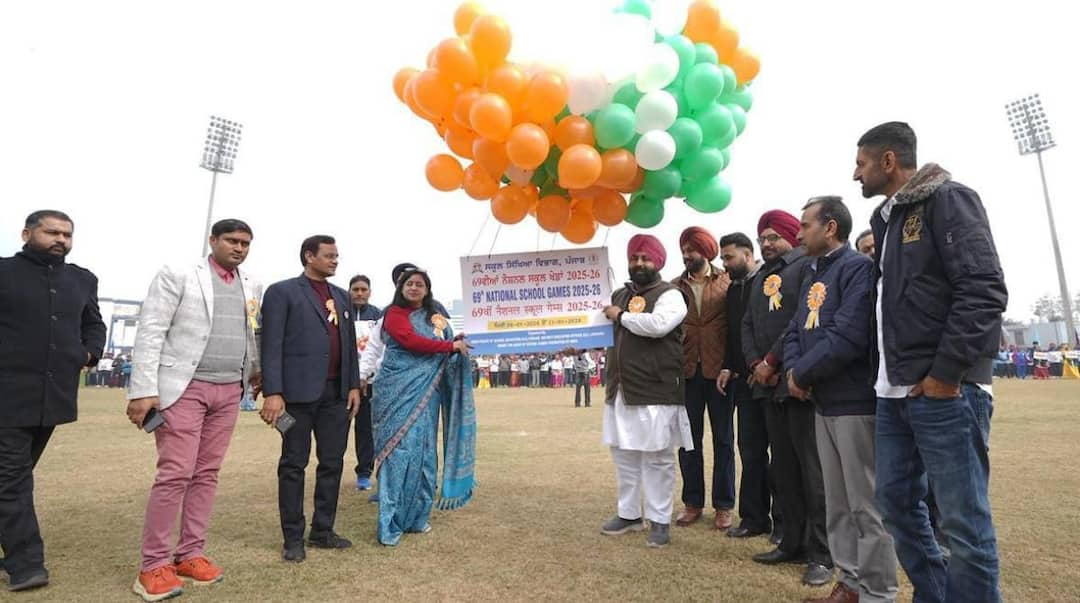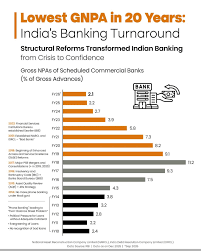Current Affairs Section

- In January 2026, the Indian Army unveiled a major step in India’s military modernisation with the creation of a new modern warfare force named ‘Bhairav’. The elite force is designed to integrate drone technology into combat operations, significantly strengthening India’s technology-driven battlefield capabilities.
- The newly raised Bhairav Force will comprise over one lakh trained drone operatives, making it one of the largest dedicated drone warfare units in the world.
What is the ‘Bhairav’ Force?
- The Bhairav Force represents a new-generation combat formation tailored for high-intensity modern warfare. Every soldier in these battalions is trained in advanced drone operations, enabling real-time surveillance, precision targeting, intelligence gathering, and rapid decision-making on the battlefield. The force is expected to enhance situational awareness, strike accuracy, and operational dominance across diverse combat environments.
- ਜਨਵਰੀ 2026 ਵਿੱਚ, ਭਾਰਤੀ ਫੌਜ ਨੇ 'ਭੈਰਵ' ਨਾਮਕ ਇੱਕ ਨਵੀਂ ਆਧੁਨਿਕ ਯੁੱਧ ਫੋਰਸ ਦੀ ਸਿਰਜਣਾ ਨਾਲ ਭਾਰਤ ਦੇ ਫੌਜੀ ਆਧੁਨਿਕੀਕਰਨ ਵਿੱਚ ਇੱਕ ਵੱਡਾ ਕਦਮ ਚੁੱਕਿਆ। ਇਸ ਐਲੀਟ ਫੋਰਸ ਨੂੰ ਡਰੋਨ ਤਕਨਾਲੋਜੀ ਨੂੰ ਲੜਾਈ ਕਾਰਜਾਂ ਵਿੱਚ ਏਕੀਕ੍ਰਿਤ ਕਰਨ ਲਈ ਤਿਆਰ ਕੀਤਾ ਗਿਆ ਹੈ, ਜਿਸ ਨਾਲ ਭਾਰਤ ਦੀ ਤਕਨਾਲੋਜੀ-ਸੰਚਾਲਿਤ ਜੰਗੀ ਸਮਰੱਥਾਵਾਂ ਨੂੰ ਮਹੱਤਵਪੂਰਨ ਤੌਰ 'ਤੇ ਮਜ਼ਬੂਤੀ ਮਿਲੇਗੀ। ।
- ਨਵੀਂ ਬਣੀ ਭੈਰਵ ਫੋਰਸ ਵਿੱਚ ਇੱਕ ਲੱਖ ਤੋਂ ਵੱਧ ਸਿਖਲਾਈ ਪ੍ਰਾਪਤ ਡਰੋਨ ਆਪਰੇਟਿਵ ਸ਼ਾਮਲ ਹੋਣਗੇ, ਜੋ ਇਸਨੂੰ ਦੁਨੀਆ ਦੀਆਂ ਸਭ ਤੋਂ ਵੱਡੀਆਂ ਸਮਰਪਿਤ ਡਰੋਨ ਯੁੱਧ ਇਕਾਈਆਂ ਵਿੱਚੋਂ ਇੱਕ ਬਣਾ ਦੇਵੇਗਾ।
'ਭੈਰਵ' ਫੋਰਸ ਕੀ ਹੈ?
- ਭੈਰਵ ਫੋਰਸ ਇੱਕ ਨਵੀਂ ਪੀੜ੍ਹੀ ਦੇ ਲੜਾਕੂ ਸੰਗਠਨ ਨੂੰ ਦਰਸਾਉਂਦੀ ਹੈ ਜੋ ਉੱਚ-ਤੀਬਰਤਾ ਵਾਲੇ ਆਧੁਨਿਕ ਯੁੱਧ ਲਈ ਤਿਆਰ ਕੀਤੀ ਗਈ ਹੈ। ਇਹਨਾਂ ਬਟਾਲੀਅਨਾਂ ਦੇ ਹਰੇਕ ਸਿਪਾਹੀ ਨੂੰ ਉੱਨਤ ਡਰੋਨ ਓਪਰੇਸ਼ਨਾਂ ਵਿੱਚ ਸਿਖਲਾਈ ਦਿੱਤੀ ਜਾਂਦੀ ਹੈ, ਜਿਸ ਨਾਲ ਅਸਲ-ਸਮੇਂ ਦੀ ਨਿਗਰਾਨੀ, ਸ਼ੁੱਧਤਾ ਨਿਸ਼ਾਨਾ ਬਣਾਉਣਾ, ਖੁਫੀਆ ਜਾਣਕਾਰੀ ਇਕੱਠੀ ਕਰਨਾ ਅਤੇ ਜੰਗ ਦੇ ਮੈਦਾਨ ਵਿੱਚ ਤੇਜ਼ੀ ਨਾਲ ਫੈਸਲਾ ਲੈਣਾ ਸੰਭਵ ਹੁੰਦਾ ਹੈ। ਇਸ ਫੋਰਸ ਤੋਂ ਵਿਭਿੰਨ ਲੜਾਈ ਵਾਤਾਵਰਣਾਂ ਵਿੱਚ ਸਥਿਤੀ ਸੰਬੰਧੀ ਜਾਗਰੂਕਤਾ, ਹਮਲੇ ਦੀ ਸ਼ੁੱਧਤਾ ਅਤੇ ਕਾਰਜਸ਼ੀਲ ਦਬਦਬਾ ਵਧਾਉਣ ਦੀ ਉਮੀਦ ਕੀਤੀ ਜਾਂਦੀ ਹੈ।
Category: Defence

- Financial Software and Systems (FSS), a global leader in payments technology and transaction processing, has become the first payments company across India, the Middle East, APAC, and South Africa to be certified as an ISO/IEC 42001 Certification Lead.
- This achievement underscores FSS’s leadership in the responsible, ethical, and regulated deployment of artificial intelligence in payments and banking technology. The certification highlights the company’s commitment to robust AI governance, risk management, and compliance, setting a benchmark for the fintech and digital payments ecosystem across multiple regions.
- ਵਿੱਤੀ ਸਾਫਟਵੇਅਰ ਅਤੇ ਸਿਸਟਮ (FSS), ਭੁਗਤਾਨ ਤਕਨਾਲੋਜੀ ਅਤੇ ਲੈਣ-ਦੇਣ ਪ੍ਰਕਿਰਿਆ ਵਿੱਚ ਇੱਕ ਗਲੋਬਲ ਲੀਡਰ, ਭਾਰਤ, ਮੱਧ ਪੂਰਬ, APAC, ਅਤੇ ਦੱਖਣੀ ਅਫਰੀਕਾ ਵਿੱਚ ਪਹਿਲੀ ਭੁਗਤਾਨ ਕੰਪਨੀ ਬਣ ਗਈ ਹੈ ਜਿਸਨੂੰ ISO/IEC 42001 ਸਰਟੀਫਿਕੇਸ਼ਨ ਲੀਡ ਵਜੋਂ ਪ੍ਰਮਾਣਿਤ ਕੀਤਾ ਗਿਆ ਹੈ।
- ਇਹ ਪ੍ਰਾਪਤੀ ਭੁਗਤਾਨਾਂ ਅਤੇ ਬੈਂਕਿੰਗ ਤਕਨਾਲੋਜੀ ਵਿੱਚ ਆਰਟੀਫੀਸ਼ੀਅਲ ਇੰਟੈਲੀਜੈਂਸ ਦੀ ਜ਼ਿੰਮੇਵਾਰ, ਨੈਤਿਕ ਅਤੇ ਨਿਯੰਤ੍ਰਿਤ ਤੈਨਾਤੀ ਵਿੱਚ FSS ਦੀ ਅਗਵਾਈ ਨੂੰ ਉਜਾਗਰ ਕਰਦੀ ਹੈ। ਪ੍ਰਮਾਣੀਕਰਣ ਕੰਪਨੀ ਦੀ ਮਜ਼ਬੂਤ AI ਸ਼ਾਸਨ, ਜੋਖਮ ਪ੍ਰਬੰਧਨ ਅਤੇ ਪਾਲਣਾ ਪ੍ਰਤੀ ਵਚਨਬੱਧਤਾ ਨੂੰ ਉਜਾਗਰ ਕਰਦਾ ਹੈ, ਜੋ ਕਿ ਕਈ ਖੇਤਰਾਂ ਵਿੱਚ ਫਿਨਟੈਕ ਅਤੇ ਡਿਜੀਟਲ ਭੁਗਤਾਨ ਈਕੋਸਿਸਟਮ ਲਈ ਇੱਕ ਮਾਪਦੰਡ ਸਥਾਪਤ ਕਰਦਾ ਹੈ।
Category: Reports & Indices

- The 69th National School Games commenced in Punjab on Tuesday, drawing young athletes from across the country. The events are being hosted at the Guru Nanak Stadium in Ludhiana.
- More than 1,200 young athletes from 38 States and Union Territories have arrived in the city for the week-long competition, which runs from 6 to 11 January 2026
- 69ਵੀਆਂ ਰਾਸ਼ਟਰੀ ਸਕੂਲ ਖੇਡਾਂ ਮੰਗਲਵਾਰ ਨੂੰ ਪੰਜਾਬ ਵਿੱਚ ਸ਼ੁਰੂ ਹੋਈਆਂ, ਜਿਸ ਵਿੱਚ ਦੇਸ਼ ਭਰ ਦੇ ਨੌਜਵਾਨ ਖਿਡਾਰੀ ਹਿੱਸਾ ਲੈ ਰਹੇ ਹਨ। ਇਹ ਪ੍ਰੋਗਰਾਮ ਲੁਧਿਆਣਾ ਦੇ ਗੁਰੂ ਨਾਨਕ ਸਟੇਡੀਅਮ ਵਿੱਚ ਆਯੋਜਿਤ ਕੀਤੇ ਜਾ ਰਹੇ ਹਨ।
- 6 ਤੋਂ 11 ਜਨਵਰੀ 2026 ਤੱਕ ਚੱਲਣ ਵਾਲੇ ਇਸ ਹਫ਼ਤੇ ਚੱਲਣ ਵਾਲੇ ਮੁਕਾਬਲੇ ਲਈ 38 ਰਾਜਾਂ ਅਤੇ ਕੇਂਦਰ ਸ਼ਾਸਤ ਪ੍ਰਦੇਸ਼ਾਂ ਦੇ 1,200 ਤੋਂ ਵੱਧ ਨੌਜਵਾਨ ਐਥਲੀਟ ਸ਼ਹਿਰ ਪਹੁੰਚੇ ਹਨ।
Category: National

- The Madras High Court has permitted the lighting of lamps on the Deepasthambam at the Tirupparankundram Temple in Tamil Nadu, upholding long-standing religious customs and practices associated with the temple. The court observed that the ritual of lighting lamps is an integral part of worship and does not violate law and order or public safety norms when carried out in a regulated manner.
- ਮਦਰਾਸ ਹਾਈ ਕੋਰਟ ਨੇ ਤਾਮਿਲਨਾਡੂ ਦੇ ਤਿਰੂਪੰਕੁੰਦਰਮ ਮੰਦਰ ਵਿੱਚ ਦੀਪਸਤੰਭਮ 'ਤੇ ਦੀਵੇ ਜਗਾਉਣ ਦੀ ਇਜਾਜ਼ਤ ਦੇ ਦਿੱਤੀ ਹੈ, ਜੋ ਕਿ ਮੰਦਰ ਨਾਲ ਜੁੜੇ ਲੰਬੇ ਸਮੇਂ ਤੋਂ ਚੱਲੇ ਆ ਰਹੇ ਧਾਰਮਿਕ ਰੀਤੀ-ਰਿਵਾਜਾਂ ਅਤੇ ਪ੍ਰਥਾਵਾਂ ਨੂੰ ਬਰਕਰਾਰ ਰੱਖਦਾ ਹੈ। ਅਦਾਲਤ ਨੇ ਕਿਹਾ ਕਿ ਦੀਵੇ ਜਗਾਉਣ ਦੀ ਰਸਮ ਪੂਜਾ ਦਾ ਇੱਕ ਅਨਿੱਖੜਵਾਂ ਅੰਗ ਹੈ ਅਤੇ ਜਦੋਂ ਇਸਨੂੰ ਨਿਯਮਤ ਢੰਗ ਨਾਲ ਕੀਤਾ ਜਾਂਦਾ ਹੈ ਤਾਂ ਇਹ ਕਾਨੂੰਨ ਅਤੇ ਵਿਵਸਥਾ ਜਾਂ ਜਨਤਕ ਸੁਰੱਖਿਆ ਨਿਯਮਾਂ ਦੀ ਉਲੰਘਣਾ ਨਹੀਂ ਕਰਦਾ।
Category: National

- The Delhi Government has decided to declare human rabies as a notified disease under the Epidemic Diseases Act, making it mandatory for all hospitals and healthcare institutions to report every confirmed case to government authorities. The move aims to strengthen disease surveillance, timely reporting, and coordinated public health response.
- ਦਿੱਲੀ ਸਰਕਾਰ ਨੇ ਮਹਾਂਮਾਰੀ ਰੋਗ ਐਕਟ ਦੇ ਤਹਿਤ ਮਨੁੱਖੀ ਰੇਬੀਜ਼ ਨੂੰ ਇੱਕ ਸੂਚਿਤ ਬਿਮਾਰੀ ਵਜੋਂ ਘੋਸ਼ਿਤ ਕਰਨ ਦਾ ਫੈਸਲਾ ਕੀਤਾ ਹੈ, ਜਿਸ ਨਾਲ ਸਾਰੇ ਹਸਪਤਾਲਾਂ ਅਤੇ ਸਿਹਤ ਸੰਭਾਲ ਸੰਸਥਾਵਾਂ ਲਈ ਹਰੇਕ ਪੁਸ਼ਟੀ ਕੀਤੇ ਕੇਸ ਦੀ ਰਿਪੋਰਟ ਸਰਕਾਰੀ ਅਧਿਕਾਰੀਆਂ ਨੂੰ ਕਰਨਾ ਲਾਜ਼ਮੀ ਹੋ ਗਿਆ ਹੈ। ਇਸ ਕਦਮ ਦਾ ਉਦੇਸ਼ ਬਿਮਾਰੀ ਦੀ ਨਿਗਰਾਨੀ, ਸਮੇਂ ਸਿਰ ਰਿਪੋਰਟਿੰਗ ਅਤੇ ਤਾਲਮੇਲ ਵਾਲੇ ਜਨਤਕ ਸਿਹਤ ਪ੍ਰਤੀਕਿਰਿਆ ਨੂੰ ਮਜ਼ਬੂਤ ਕਰਨਾ ਹੈ।
Category: National

- An RBI report released in late December 2025 confirmed that Indian banks’ Gross Non-Performing Assets (GNPAs) declined to a multi-decade low of 2.1% by end-September 2025, compared to 2.2% in March 2025 and sharply lower than the peak levels of 11–12% recorded around 2018.
- The report highlights a sustained improvement in asset quality, continuing the positive trend observed since 2018–19.
- Net NPA ratio remained stable and low at 0.5%, indicating improved balance-sheet strength of banks.
- The decline in NPAs has been driven by better loan recoveries, upgradations of stressed assets, and lower slippage ratios, reflecting stronger credit discipline and banking sector resilience.
- ਦਸੰਬਰ 2025 ਦੇ ਅਖੀਰ ਵਿੱਚ ਜਾਰੀ ਕੀਤੀ ਗਈ ਇੱਕ RBI ਰਿਪੋਰਟ ਨੇ ਪੁਸ਼ਟੀ ਕੀਤੀ ਕਿ ਭਾਰਤੀ ਬੈਂਕਾਂ ਦੀਆਂ ਕੁੱਲ ਗੈਰ-ਪ੍ਰਦਰਸ਼ਨ ਸੰਪਤੀਆਂ (GNPAs) ਸਤੰਬਰ 2025 ਦੇ ਅੰਤ ਤੱਕ 2.1% ਦੇ ਕਈ ਦਹਾਕਿਆਂ ਦੇ ਹੇਠਲੇ ਪੱਧਰ 'ਤੇ ਆ ਗਈਆਂ, ਜੋ ਕਿ ਮਾਰਚ 2025 ਵਿੱਚ 2.2% ਸੀ ਅਤੇ 2018 ਦੇ ਆਸਪਾਸ ਦਰਜ ਕੀਤੇ ਗਏ 11-12% ਦੇ ਸਿਖਰ ਪੱਧਰ ਤੋਂ ਤੇਜ਼ੀ ਨਾਲ ਘੱਟ ਹਨ।
- ਰਿਪੋਰਟ ਸੰਪਤੀ ਦੀ ਗੁਣਵੱਤਾ ਵਿੱਚ ਨਿਰੰਤਰ ਸੁਧਾਰ ਨੂੰ ਉਜਾਗਰ ਕਰਦੀ ਹੈ, ਜੋ ਕਿ 2018-19 ਤੋਂ ਬਾਅਦ ਦੇਖੇ ਗਏ ਸਕਾਰਾਤਮਕ ਰੁਝਾਨ ਨੂੰ ਜਾਰੀ ਰੱਖਦੀ ਹੈ।
- ਸ਼ੁੱਧ NPA ਅਨੁਪਾਤ ਸਥਿਰ ਅਤੇ 0.5% 'ਤੇ ਘੱਟ ਰਿਹਾ, ਜੋ ਬੈਂਕਾਂ ਦੀ ਬੈਲੇਂਸ-ਸ਼ੀਟ ਤਾਕਤ ਵਿੱਚ ਸੁਧਾਰ ਦਰਸਾਉਂਦਾ ਹੈ।
- NPAs ਵਿੱਚ ਗਿਰਾਵਟ ਬਿਹਤਰ ਕਰਜ਼ਾ ਵਸੂਲੀ, ਤਣਾਅ ਵਾਲੇ ਸੰਪਤੀਆਂ ਦੇ ਅਪਗ੍ਰੇਡੇਸ਼ਨ, ਅਤੇ ਘੱਟ ਸਲਿੱਪੇਜ ਅਨੁਪਾਤ ਦੁਆਰਾ ਪ੍ਰੇਰਿਤ ਹੈ, ਜੋ ਕਿ ਮਜ਼ਬੂਤ ਕ੍ਰੈਡਿਟ ਅਨੁਸ਼ਾਸਨ ਅਤੇ ਬੈਂਕਿੰਗ ਖੇਤਰ ਦੇ ਲਚਕੀਲੇਪਣ ਨੂੰ ਦਰਸਾਉਂਦੀ ਹੈ।
Category: Reports & Indices

- ISRO has reported new scientific insights into cosmic dust particles that continuously interact with Earth’s atmosphere, enhancing understanding of near-Earth space conditions. Using an indigenous instrument, scientists confirmed that a microscopic cosmic dust particle impacts Earth’s atmosphere roughly every 1,000 seconds, or about once every 16 minutes.
DEX Instrument and Scientific Breakthrough
- The findings were obtained using the Dust EXperiment (DEX), India’s first indigenous cosmic dust detector, developed by ISRO.
- The 3-kg compact instrument was launched on 1 January 2024 aboard the XPoSat mission.
- During experimental operations conducted between January and February 2024, DEX successfully recorded repeated high-speed dust impacts while operating in Earth’s upper atmosphere, marking a significant milestone in space science research.
- ਇਸਰੋ ਨੇ ਬ੍ਰਹਿਮੰਡੀ ਧੂੜ ਦੇ ਕਣਾਂ ਬਾਰੇ ਨਵੀਂ ਵਿਗਿਆਨਕ ਸੂਝ ਦੀ ਰਿਪੋਰਟ ਕੀਤੀ ਹੈ ਜੋ ਧਰਤੀ ਦੇ ਵਾਯੂਮੰਡਲ ਨਾਲ ਲਗਾਤਾਰ ਸੰਪਰਕ ਕਰਦੇ ਹਨ, ਜਿਸ ਨਾਲ ਧਰਤੀ ਦੇ ਨੇੜੇ ਪੁਲਾੜ ਸਥਿਤੀਆਂ ਦੀ ਸਮਝ ਵਧਦੀ ਹੈ। ਇੱਕ ਸਵਦੇਸ਼ੀ ਯੰਤਰ ਦੀ ਵਰਤੋਂ ਕਰਦੇ ਹੋਏ, ਵਿਗਿਆਨੀਆਂ ਨੇ ਪੁਸ਼ਟੀ ਕੀਤੀ ਕਿ ਇੱਕ ਸੂਖਮ ਬ੍ਰਹਿਮੰਡੀ ਧੂੜ ਕਣ ਧਰਤੀ ਦੇ ਵਾਯੂਮੰਡਲ ਨੂੰ ਲਗਭਗ ਹਰ 1,000 ਸਕਿੰਟਾਂ ਵਿੱਚ, ਲਗਭਗ ਹਰ 16 ਮਿੰਟਾਂ ਵਿੱਚ ਇੱਕ ਵਾਰ ਪ੍ਰਭਾਵਿਤ ਕਰਦਾ ਹੈ।
DEX ਯੰਤਰ ਅਤੇ ਵਿਗਿਆਨਕ ਸਫਲਤਾ
- ਇਹ ਖੋਜਾਂ ISRO ਦੁਆਰਾ ਵਿਕਸਤ ਕੀਤੇ ਗਏ ਭਾਰਤ ਦੇ ਪਹਿਲੇ ਸਵਦੇਸ਼ੀ ਬ੍ਰਹਿਮੰਡੀ ਧੂੜ ਖੋਜਕਰਤਾ, ਧੂੜ ਪ੍ਰਯੋਗ (DEX) ਦੀ ਵਰਤੋਂ ਕਰਕੇ ਪ੍ਰਾਪਤ ਕੀਤੀਆਂ ਗਈਆਂ ਸਨ।
- 3-ਕਿਲੋਗ੍ਰਾਮ ਸੰਖੇਪ ਯੰਤਰ ਨੂੰ 1 ਜਨਵਰੀ 2024 ਨੂੰ XPoSat ਮਿਸ਼ਨ 'ਤੇ ਲਾਂਚ ਕੀਤਾ ਗਿਆ ਸੀ।
- ਜਨਵਰੀ ਅਤੇ ਫਰਵਰੀ 2024 ਦੇ ਵਿਚਕਾਰ ਕੀਤੇ ਗਏ ਪ੍ਰਯੋਗਾਤਮਕ ਕਾਰਜਾਂ ਦੌਰਾਨ, DEX ਨੇ ਧਰਤੀ ਦੇ ਉੱਪਰਲੇ ਵਾਯੂਮੰਡਲ ਵਿੱਚ ਕੰਮ ਕਰਦੇ ਹੋਏ ਵਾਰ-ਵਾਰ ਤੇਜ਼-ਰਫ਼ਤਾਰ ਧੂੜ ਦੇ ਪ੍ਰਭਾਵਾਂ ਨੂੰ ਸਫਲਤਾਪੂਰਵਕ ਰਿਕਾਰਡ ਕੀਤਾ, ਜੋ ਪੁਲਾੜ ਵਿਗਿਆਨ ਖੋਜ ਵਿੱਚ ਇੱਕ ਮਹੱਤਵਪੂਰਨ ਮੀਲ ਪੱਥਰ ਹੈ।
Category: Science & Tech
